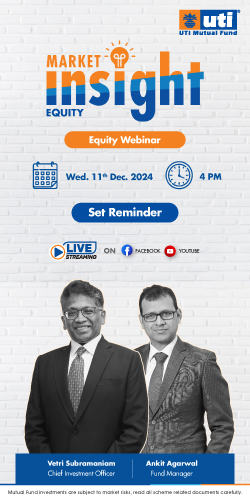The last 2-3 years have been extremely challenging for financial intermediaries. Sweeping and extensive changes have been brought about at a furious pace - regulatory actions have reduced margins; changes in customer preferences have impacted the business dynamics. The combined effect has been devastating for some.
In such a scenario, cost cutting seems a sensible response. However, in these inflationary times, there is no room to cut down on expenses like rent and manpower. Then, there are unavoidable costs related to upgrading of knowledge and technology. So, instead of cutting costs, I would strongly recommend increasing productivity.
Different people define productivity differently. So let us understand what productivity is.
We would define it as profit per year. However, the profit we refer to, is not just about the past period, it is also about the ability to generate future profits. An eye on future profits would ensure the IFA acquires new customers and works hard to retain existing ones.
So, let us keep going deeper to understand what does it take to generate profits, acquire new clients and retain existing for long periods. Naturally, our aim is to ensure that the cost of doing business must be kept less than the revenues under almost all circumstances.
In an advisor’s business, the biggest contributor to the overall cost is the cost of manpower. Within that, the larger component is the cost of the advisor’s time. How do we manage this time to get maximum benefit for the client and for our business? The whole question seems like a time management issue.
Let us now examine this more closely. Time is spent on doing various activities. These activities may generate some results and may also increase some costs. But at any point in time, there is a cost of time associated with any activity. Some activities are undertaken as a matter of habit, so one is unable to assess the implications of doing or not doing the activity.
So, review these activities carefully and periodically. Any activity that is not helping the client or the business must be weeded out.
All activities may be classified in the following categories:
Activities that can be done better with the help of technology
How does technology help? Any task that involves repetition but requires timeliness and accuracy, technology beats man hands down. Technology can be used where large amount of data is involved or complex calculations are required.
Client portfolio tracker, maintenance of business accounts, customer relationship management through a CRM package, number crunching to help in research work, calculating cash flows to prepare a financial plan, etc. are some examples where technology can play a major role.
Communication is another area where technology can help getting more work done within limited time and expenses.
Those that can be outsourced
Identify the core functions of your business. For an advisor’s business, these would include interaction with the client, portfolio advisory, handholding clients, finalizing and presenting financial plans, networking and client acquisition, public relations, etc. are some of the core tasks of an advisor’s business. At the same time, for client confidentiality and compliance reasons, data and document management also must be in-house. All other activities can be considered for outsourcing.
Some activities can be delegated to junior staff
Often, the advisor may end up doing certain critical but low-end work by himself / herself. For example, one has seen advisors spending time in filling up forms. Such work can be delegated to junior staff. Even certain type of follow up can be done by junior staff.
Certain activities may be completely stopped
This is the toughest one as admitting that one is doing some unproductive activity requires an open mindset. Let us look at an example:
Some advisors attempt to time the market and engage in frequent switching from one asset class to another. (Let us skip the discussion of whether it makes sense or not and look at it now as a time management issue only).If one is consistently making money for the client through this activity, one should also expect to get additional reward for the alpha generated. However, if the client is not making money consistently or the advisor is not getting additionally rewarded, this activity must be dropped. Frequent transactions require spending money and time both.
Following the above template should enable one to increase productivity. That will put one in a better position compared to most others.
- Amit Trivedi
The author runs Karmayog Knowledge Academy. The views expressed are his personal views. He can be reached at amit@karmayog-knowledge.com.




